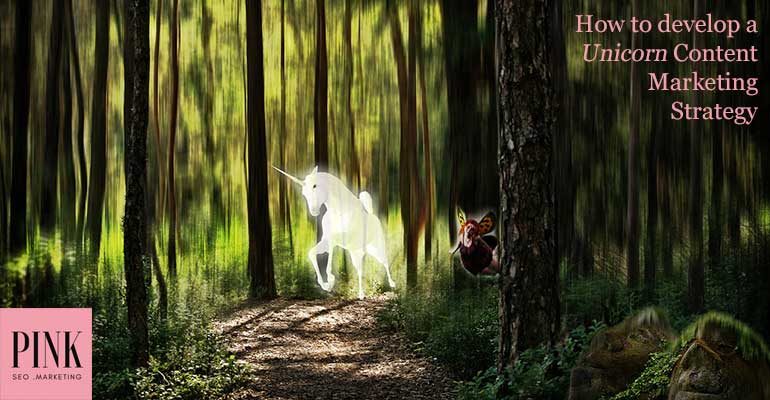What is content marketing with “unicorn” ambitions
- Home
- Articles and Publications
- SEO Tips
- What is content marketing with “unicorn” ambitions
What is content marketing with “unicorn” ambitions
Posted on November 17, 2017
0 Comment
As we promised in our article on the SEO testing, today we would like to share an interesting view on what is a content marketing strategy that really aims at quality – or, as it was defined by Larry Kim, winner of Search Marketer of the Year Awards from Search Engine Land, the US Search Awards and PPC Hero, Founder of WordStream and CEO of MobileMonkey, “unicorn marketing“.
During the webinar “Unicorn Marketing: Getting 10x results across every marketing channel – The Top 7 Content Promotion Hacks of 2017” for Mention.com, Larry Kim uses the word “unicorn“, as opposed to “donkey“, to indicate something that is really rare and incredibly precious, compared to something that is very common and not so valuable.
According to his “unicorn marketing” theory, in this widespread content creation world, there is an “epidemic problem of lack of knowledge of what quality content is”.
He asks a rhetoric question: “Why does 98% of the so-called quality content campaign go nowhere?”
Being the future of content marketing an increasingly winner-take-all reality, the only possible solution seems to be to adjust our content marketing strategy, revising our definition of quality in accordance with what Facebook and Google algorithms actually evaluate it. This is, basically, the unicorn marketing!
To understand what is content marketing with “unicorn” ambitions, first, we have to learn how to distinguish unicorns from donkeys.
The difference amongst them is relative and cross-channel.
Relative, because there is not an absolute number at which a donkey becomes a unicorn. It has more to do with the shape of your distribution of outcomes.
You can, for example, analyse your post engagement rate on Facebook posts. You will notice that a very vast majority of them are “donkeys”, with a very low click-through-rate. You may spot a couple of “unicorns“ amongst them, though, which are 10x more engaging. This is why the definition of unicorns and donkeys is relative: if you look at your own campaign data, you always find that most of them go nowhere, but a few of them do really, really, really well. These are the unicorns and every one of us has them, no matter how our content really is.
The same goes with blogging: the definition of unicorns and donkeys is is cross-channel because a small number of the content you published (10%) generate most of the traffic (+60%) across all of the channels.
Unicorns and viral hits are not to be confused: you cannot foresee what will become viral, often for no logical reason, but you can spot unicorns, which are the top 3%of the content that you already have, that are doing much better than the rest.
Google and Facebook evaluate the content quality through the click-through-rates, so that’s our unicorn detector. The key to AdWords, for example, has always been the CTR (see the Quality Score, which dramatically affects you CPC), same as Twitter Ads and Facebook Ads: a higher engagement rate means a much lower cost per engagement.
It is cross-channel, so it happens also in the organic search: CTR does impact rankings. Over the last year, Google has been changing its algorithms into Rankbrain and reordering the organic SERPs to favour the listings with higher click-through-rates over time. Same thing with Facebook newsfeed algorithm, which displays content that is proven to be engaging for the users.
CTR (open rates) impact email marketing success, as well and email spam filter algorithms, like Gmail’s, filter low engagement emails, even if you opted in to them. CTR matters for conversion rates, too, in a direct correlation.
PPC, SEO & social media employ machine learning-enabled algorithms that reward high engagement content with much greater visibility and punish the low engagement donkeys by making them invisible. So, engagement rates, like CTR, are the key quality metric of unicorn marketing.
Unfortunately, 9 out of 10 marketers suffer, according to Larry Kim, of chronical donkey denial syndrome. and they need an objective way to distinguish unicorns from non-unicorn campaigns.
Check our Beginners Guide: how to develop a content marketing strategy and if you wish to get our help to find (and grow) some unicorns in your web realm, just summon us!


